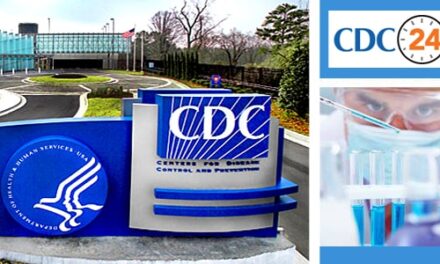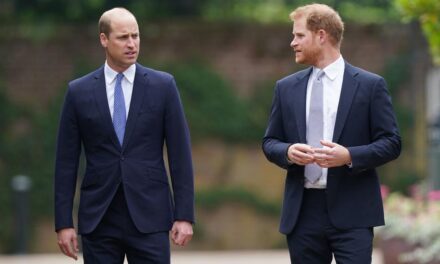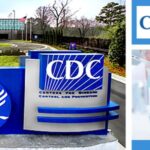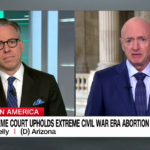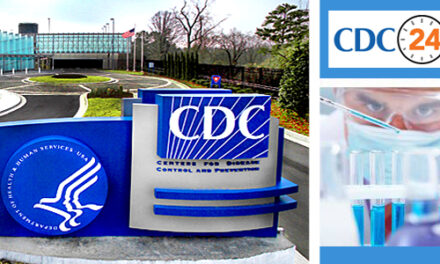
Coronavirus vaccine: Is it common to pause clinical trials?
They involve thousands, or even tens of thousands, of participants, and typically go on for years. The chances that one or more of these study volunteers will develop a health issue is quite high.
Most of the time, that health problem is not related to the vaccine being investigated, and the trial can continue. But sometimes there is a chance that the issue — called an “adverse event” in medical parlance — could be related to the vaccine.
In that case, the trial is paused so the incident can be investigated.
On Wednesday, it came to light that pharmaceutical giant AstraZeneca had paused its coronavirus vaccine trial not once but twice because of adverse events. The second pause is still in effect while researchers look into one volunteer’s “unexplained illness.”
While Dr. Robert Redfield, director of the US Centers for Disease Control and Prevention, on Wednesday implied that pausing a Phase 3 trial was a somewhat common occurrence, vaccine trial experts interviewed by CNN say it is not common.
“It’s unusual to pause a Phase 3 trial on a safety basis,” said Dr. Carl Fichtenbaum, an infectious disease expert at the University of Cincinnati College of Medicine. “It’s uncommon.”
One trial, two pauses
AstraZeneca announced Tuesday it had paused global trials of its coronavirus vaccine because of an unexplained illness in one of the study participants.
Then on Wednesday, a company spokesperson revealed the trial had also paused briefly in July to investigate an illness in another study volunteer, who “was confirmed to have an undiagnosed case of multiple sclerosis, which an independent panel had concluded was unrelated to the vaccine.”
AstraZeneca is one of three companies in the US currently in Phase 3 trials for a coronavirus vaccine. Each trial is aiming to enroll 30,000 people; half will get the vaccine and half will get a placebo, which is a shot of saline that does nothing.
“With that many people, it’s inevitable that someone, at some point, will get sick,” said Dr. Robert Frenck, director of the Vaccine Research Center at Cincinnati Children’s Hospital.
Carrie Wolinetz, associate director for science policy at the National Institutes of Health, agrees. “Adverse events happen in the normal course of very large trials. It’s really a matter of determining whether it’s a coincidental event or was it really something linked to the trial itself,” she said.
The coronavirus vaccine trials are what’s called “double blind,” so when someone gets sick, neither the participants nor the doctors know if they received the vaccine or the placebo.
The only people who know are members of the trial’s Data Safety and Monitoring Board — an external group of experts that monitors the trial.
Each trial has its own protocol, but when an illness arises that causes concern, the DSMB will see if the volunteer received the vaccine or a placebo.
If the volunteer received the vaccine, then the questions begin. If it’s believed that the illness might possibly be related to the vaccine, the DSMB might recommend that the trial pause while the illness is investigated.
After investigating, the DSMB might recommend that the trial continue as before, or it might suggest a change in the trial protocol, or it could recommend that the trial be shut down.
On Wednesday, Dr. Anthony Fauci, director of the National Institute of Allergy and Infectious Diseases, commented on the AstraZeneca trial pause.
“It’s unfortunate that it happened. Hopefully they’ll work it out and be able to proceed along with the remainder of the trial, but you don’t know. They need to investigate it further,” Fauci said.
Hitting the pause button
Redfield said Wednesday that in his research, he at times had to put trials on hold.
“I’ve conducted a number of clinical trials in my days, both at Walter Reed [National Military Medical Center] and University of Maryland, of which I had the trial put on hold because of adverse reactions until we could evaluate whether that adverse reaction was something that was associated with the investigational product, and if so, was it serious enough that we then had to stop the trial,” Redfield said at an online forum held by Research!America.
Redfield did not specify whether he meant vaccine trials, nor did he specify whether he meant Phase 3 trials or trials in earlier phases, which can be more prone to adverse events because the vaccine hasn’t been as well tested.
CNN reached out to a spokesperson for Redfield for clarification, but they did not provide a comment.
Illnesses that necessitate a pause don’t occur very often, according to three vaccinologists — Frenck, Fichtenbaum and Dr. Saad Omer — who, combined, have worked on more than 100 vaccine trials.
“In Phase 3, it’s uncommon to have a pause,” Frenck said. “I’ve seen it happen a few times.”
He estimates that pauses in Phase 3 trials due to a study subject becoming ill happens “in under 10% of trials — probably under 5%.”
According to Fichtenbaum, “Phase 3 trials don’t typically pause. I’ve only seen it handful of times in my experience.”
Both Fichtenbaum and Frenck have served on DSMBs. Additionally, Frenck is a researcher in both the AstraZeneca and Pfizer coronavirus vaccine trials, and Fichtenbaum is an investigator in the Moderna coronavirus vaccine trial.
Omer is director of the Yale Institute for Global Health and has been the principal investigator in several vaccine trials.
“It’s not unheard of that a trial has paused. It’s a very real possibility,” he said. “But I wouldn’t call it common.”
Confusion about the cause of AstraZeneca’s most recent pause
AstraZeneca on Wednesday issued a statement denying news reports that suggested the trial was stopped the second time because of a case of transverse myelitis — a rare inflammatory condition of the spinal cord.
“Reports claiming to be based on comments made earlier today by our CEO stating that we have confirmed that a participant in our clinical trial suffered from transverse myelitis are incorrect. He stated that there is no final diagnosis and that there will not be one until more tests are carried out,” a spokesperson for the pharmaceutical giant said in a statement emailed to CNN.
“Those tests will be delivered to an independent safety committee that will review the event and establish a final diagnosis,” the spokesperson added.
The New York Times had quoted a source saying a trial volunteer had transverse myelitis. And STAT News reported that the company’s CEO, Pascal Soriot, told investors in a conference call that the trial was stopped because a woman volunteering in the trial had symptoms consistent with transverse myelitis.
While AstraZeneca didn’t specify what the issue was, at a Congressional hearing Wednesday, NIH Director Dr. Francis Collins said the AstraZeneca hold was due to a “spinal cord problem.”
“With an abundance of caution, at a time like this, you put a clinical hold. You investigate carefully to see if anybody else who received that vaccine or any of the other vaccines might have had a similar finding of a spinal cord problem,” Collins explained.
He added that “this ought to be reassuring to everybody listening,” as this shows the “focus first on safety.”





